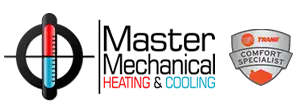Improving Home Efficiency: Dealing with an Inefficient Heating System in Older Homes
Nestled in the charm of history, older homes have a unique allure that modern constructions simply cannot replicate. From the character that oozes out of every nook to the storied past etched into each wooden beam, these homes are more than just a living space; they are a testament to time. However, as romantic as the notion of living in an older home is, the reality often comes with a few cold truths — particularly regarding the efficiency of critical components, like the heating system.
This article aims to take you through the intricate process of enhancing your living experience in an older home by tackling the inefficiencies of an outdated heating system. Our approach will unravel the technical aspects of heating upgrades and champion the cause of sustainability and cost savings. Whether you're a history enthusiast or a pragmatic homeowner, these strategies promise to inoculate your vintage abode with the modern touch it deserves.
Understanding the Inefficiency
Before we jump into solutions, it's crucial to understand the underlying issues that plague older heating systems. Heating in older homes typically relies on equipment that might be several decades old. While these systems may be built to last, they often fall short of energy efficiency standards set by today's models. This can lead to higher energy bills, inconsistent heating levels, and a noticeable environmental impact.
The Aging Dilemma
The first issue with outdated heating systems is their natural aging process. Over time, parts begin to wear down, and the system as a whole becomes less effective at heating your living space. It’s no wonder homeowners often pile on layers of clothing or gather around portable heaters just to keep warm.
Outdated Technology
Although innovative for its time, the technology of yesteryears cannot hold a candle to the energy-efficient features of contemporary heating units. Old boilers and furnaces tend to be less precise with fuel usage, leading to more waste.
Energy Loss Through the Cracks
The cliche of "throwing money out the window" becomes a sobering reality regarding the efficiency of older homes. Poor insulation, drafty windows, and inadequate sealing contribute to significant energy loss, making the job of the already inefficient heating system even more challenging.
Improvement Strategies
Now that we're familiar with the problem, it's time to explore the myriad of solutions available to upgrade your home heating system.
Enhance Insulation and Weatherproofing
One of the most effective ways to improve the efficiency of your heating system is by preventing that hard-earned warmth from escaping. Upgrading your home's insulation, especially in key areas like the attic and crawl spaces, can make a world of difference. Similarly, investing in weatherproofing solutions such as draft stoppers and window seals helps trap the heat inside.
The Magic of a Programmable Thermostat
A programmable thermostat introduces a level of control that is a boon for any homeowner with an active lifestyle. By setting your heating system to work only when you need it most, you can significantly reduce energy wastage when your home is empty or when the family is asleep.
The Big Leap: Energy-Efficient Heating Systems
Consider replacing your old heating system with a modern, energy-efficient model for the most substantial improvement. This can be a sizable investment up front but will yield long-term savings on your energy bills, not to mention the added benefit of having a more reliable system that requires less maintenance.
Regular Maintenance and Tune-Ups
Do not underestimate the power of regular check-ups. Keeping your heating system in top condition prolongs its lifespan and ensures it runs as efficiently as possible. Even a simple clogged filter can significantly dent your heating system's efficiency.
DIY Cost-Effective Solutions
Heating efficiency can sometimes come with a hefty price tag. There are several cost-effective strategies you can implement on your own to improve the performance of your heating system.
Mindful Usage
A simple behavior change can sometimes be the most impactful. Closing doors to unoccupied rooms and using curtains to keep heat where it's needed help to focus the warmth on the living areas of your home.
Incentives and Rebates
Look for incentives from energy providers or government rebates for purchasing energy-efficient appliances. Sometimes, these rebates are substantial and help offset the initial cost of your upgrades.
Long-Term Savings Calculations
When considering the investment in a new heating system or insulation upgrades, it's important to look at the long-term picture. Start by calculating the potential savings in energy costs over the years, and you might find that the upgrades practically pay for themselves.
Contact Us Today!
Living in an older home with an inefficient heating system does not have to struggle with comfort versus cost. By implementing the strategies and solutions, you can enhance the efficiency of your heating system, leading to a better living environment and substantial savings over time. Whether you opt for minor DIY fixes or decide on a full-scale heating system upgrade, every step taken toward efficiency is a step toward a more sustainable and economical future for your home. Contact us at Master Mechanical for professional HVAC assistance today!






